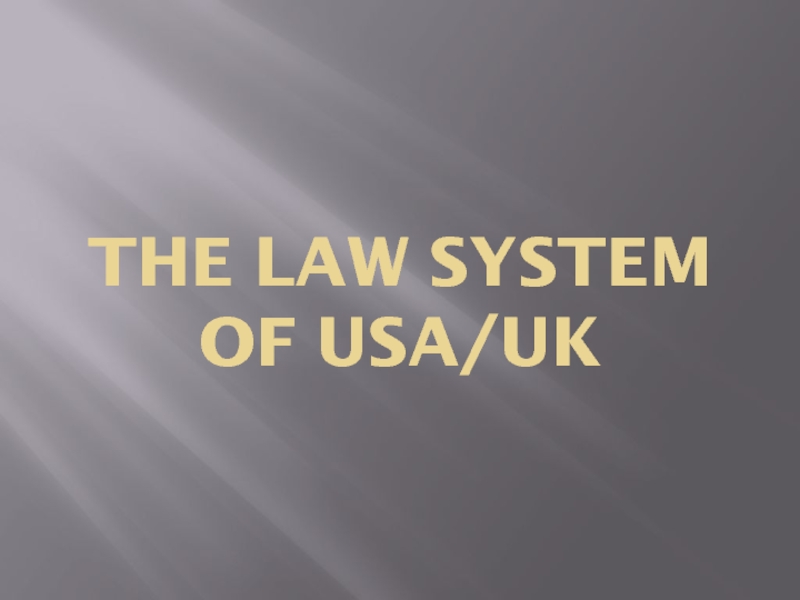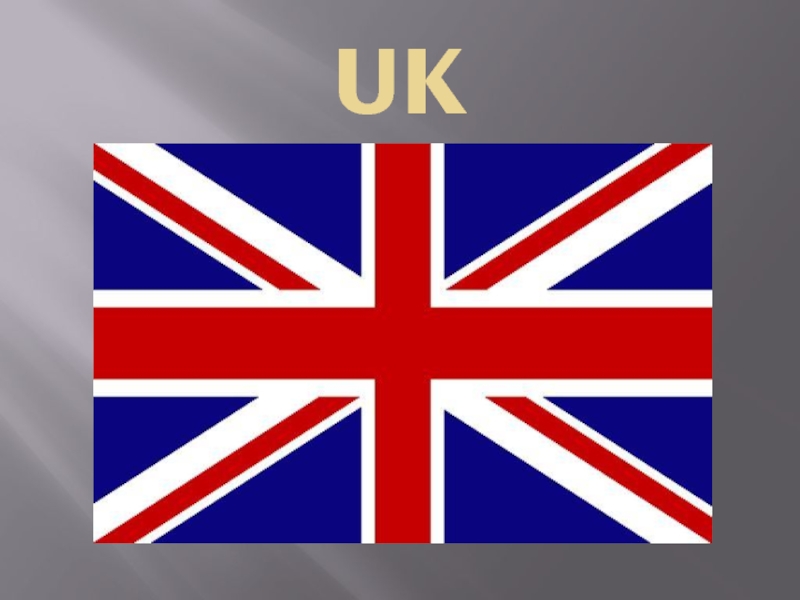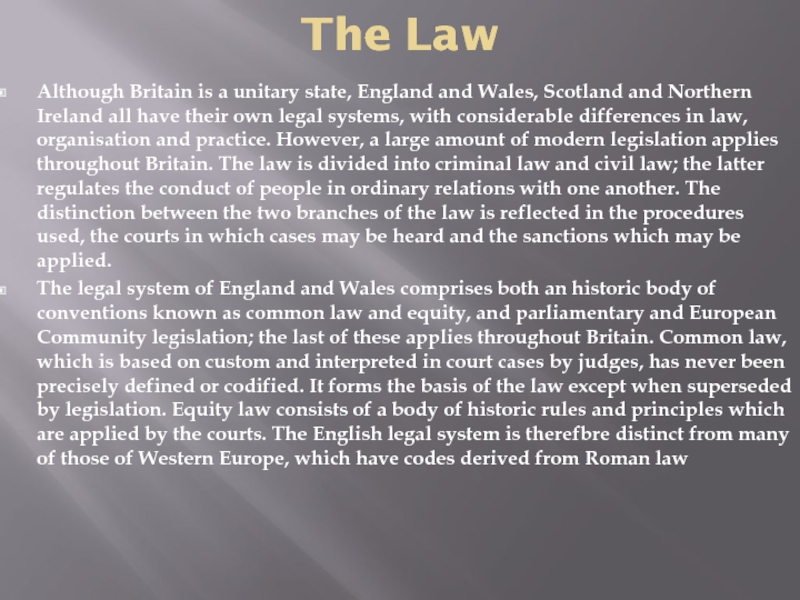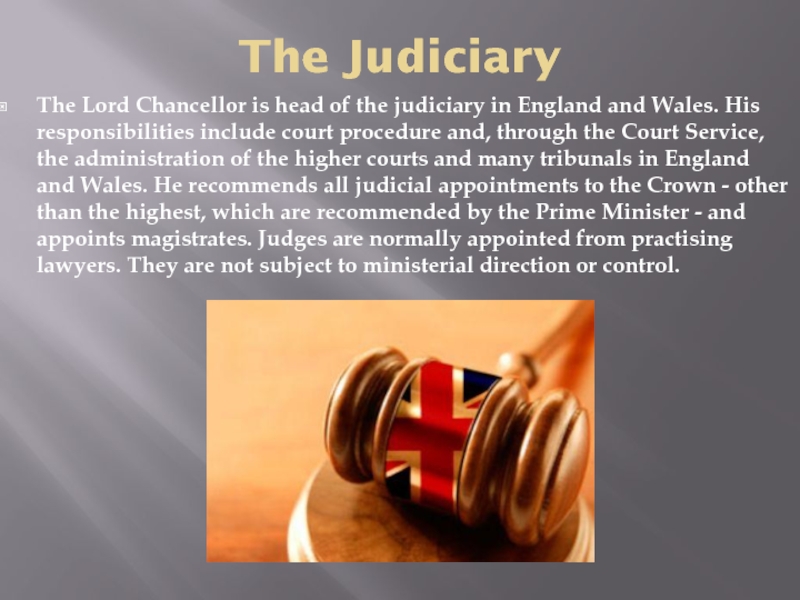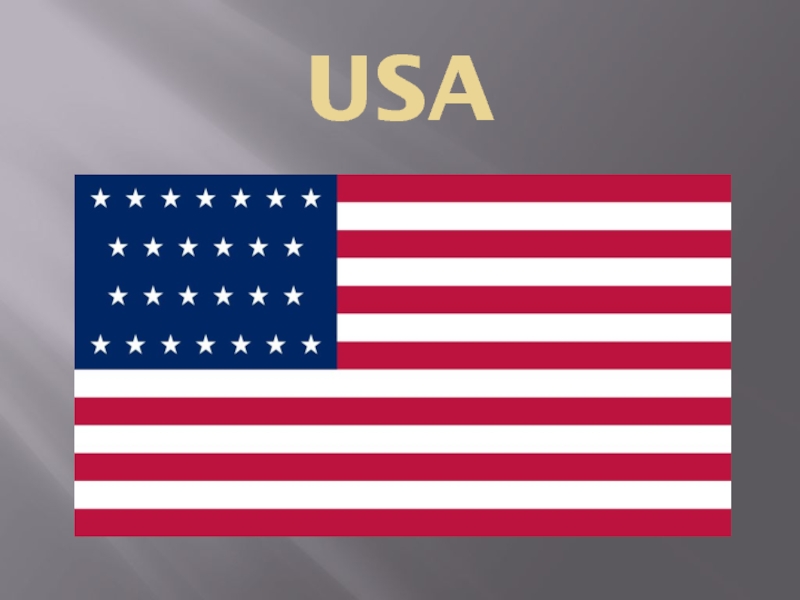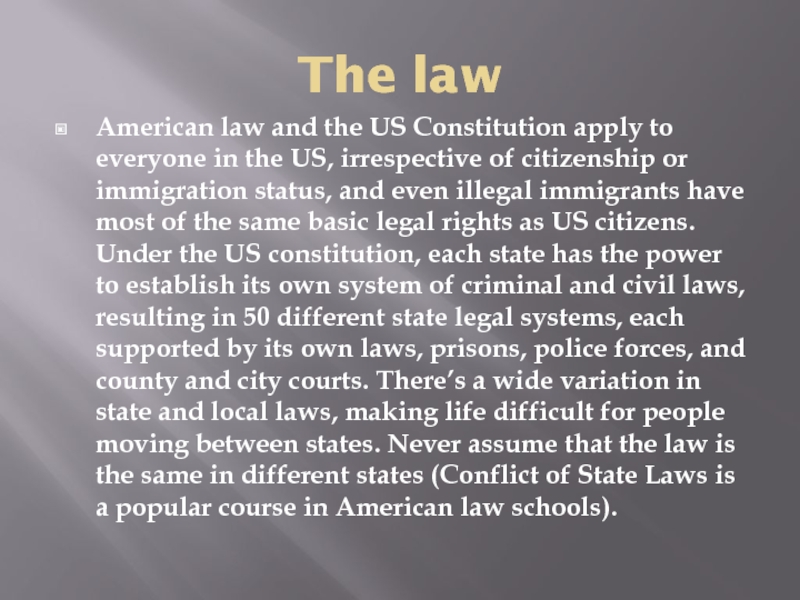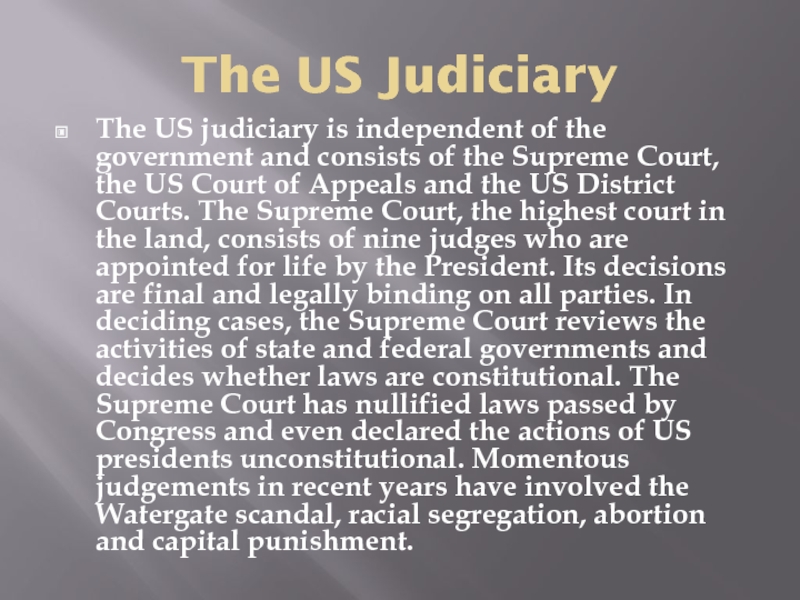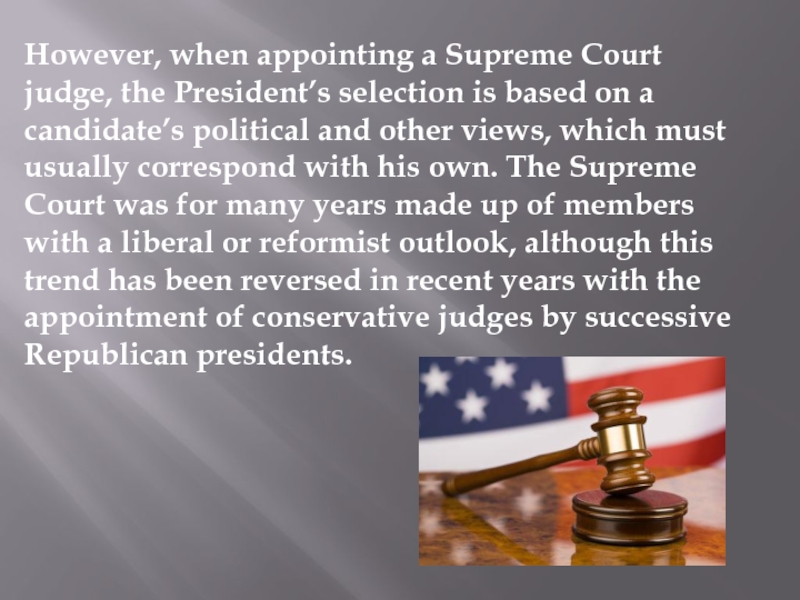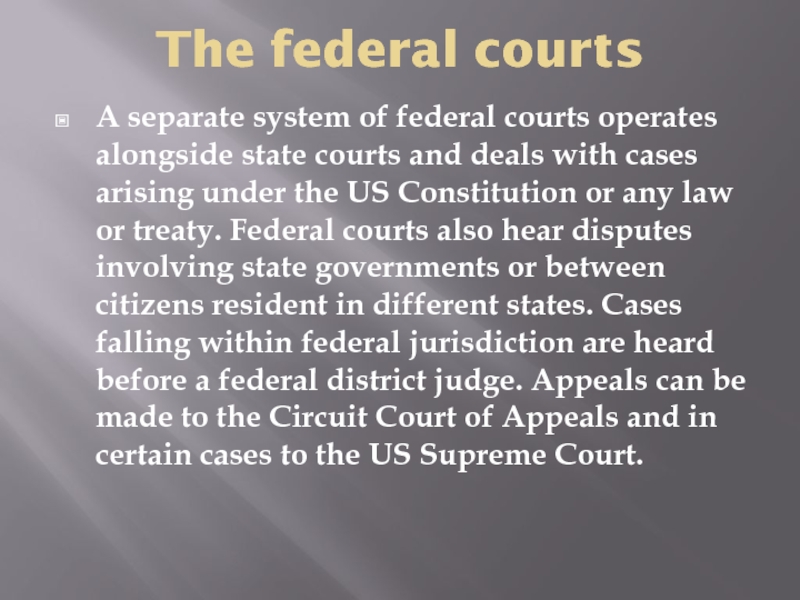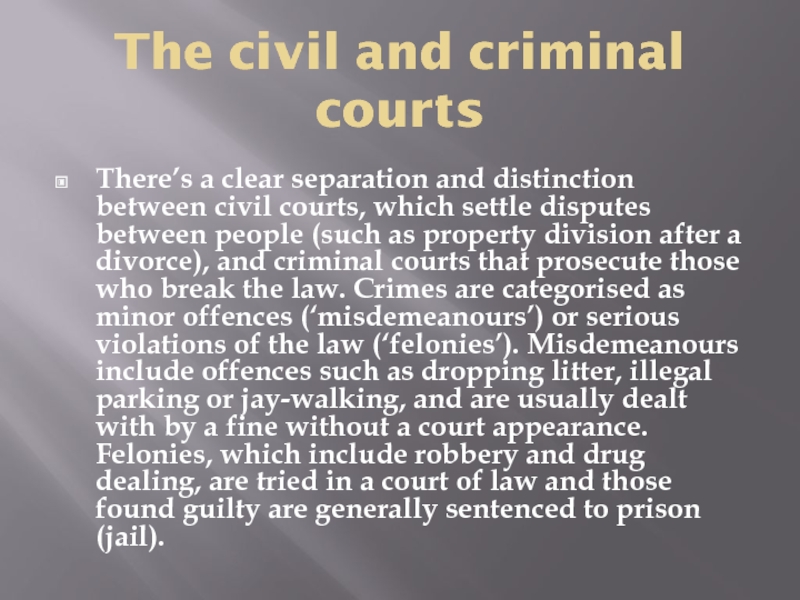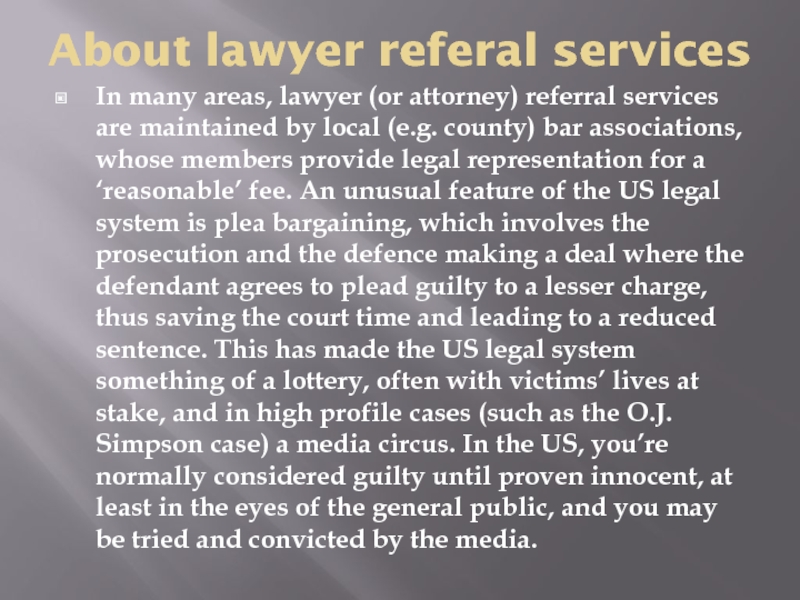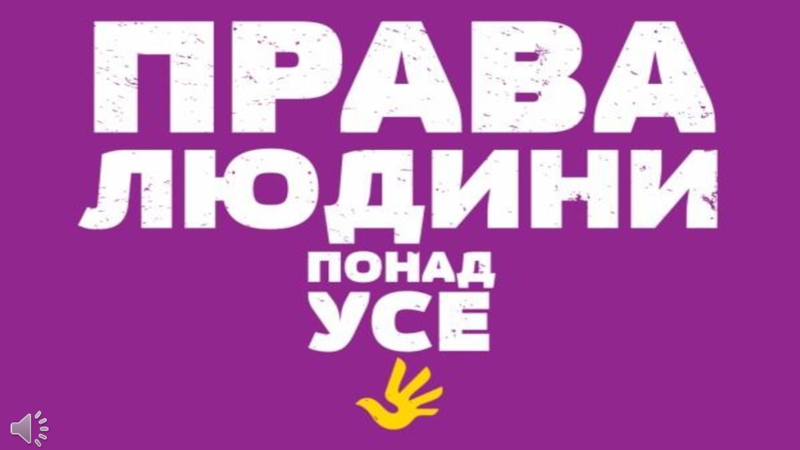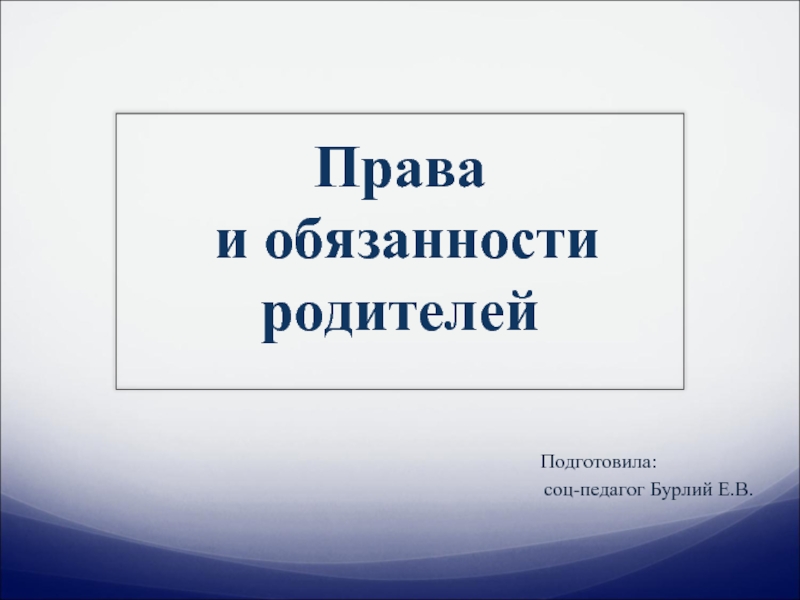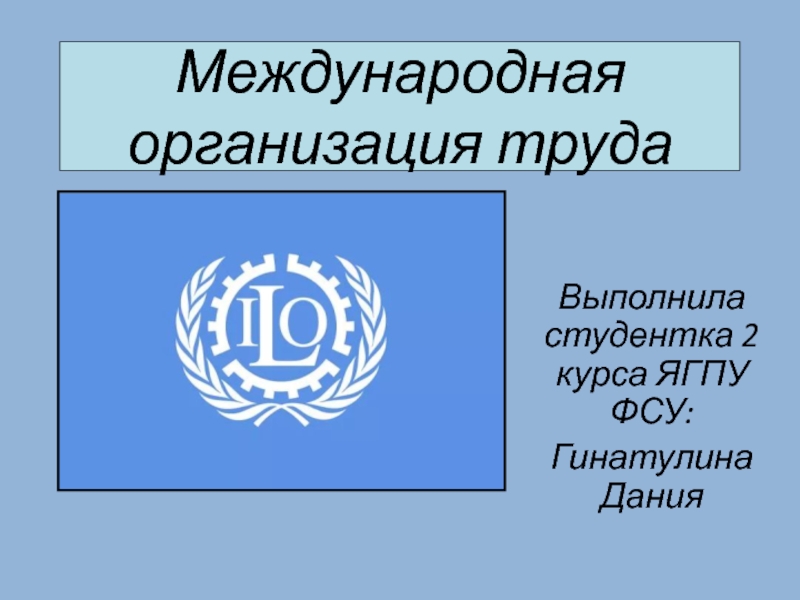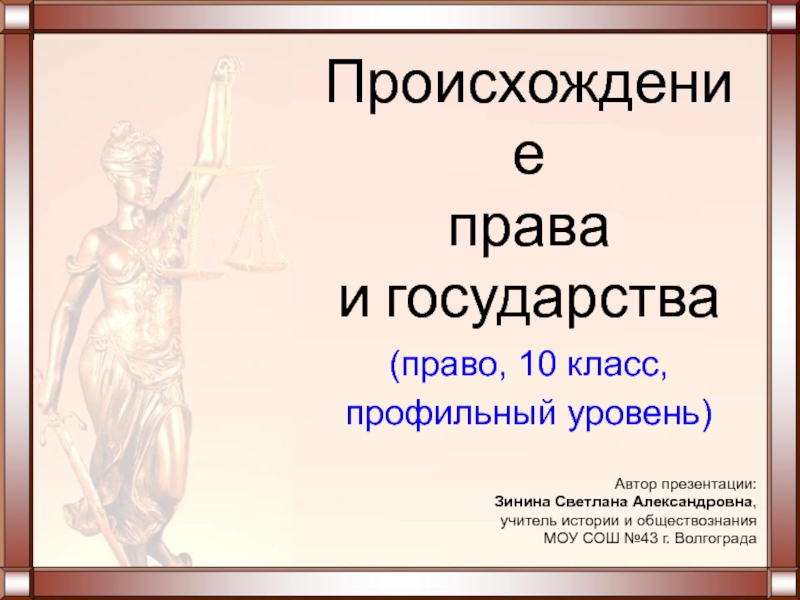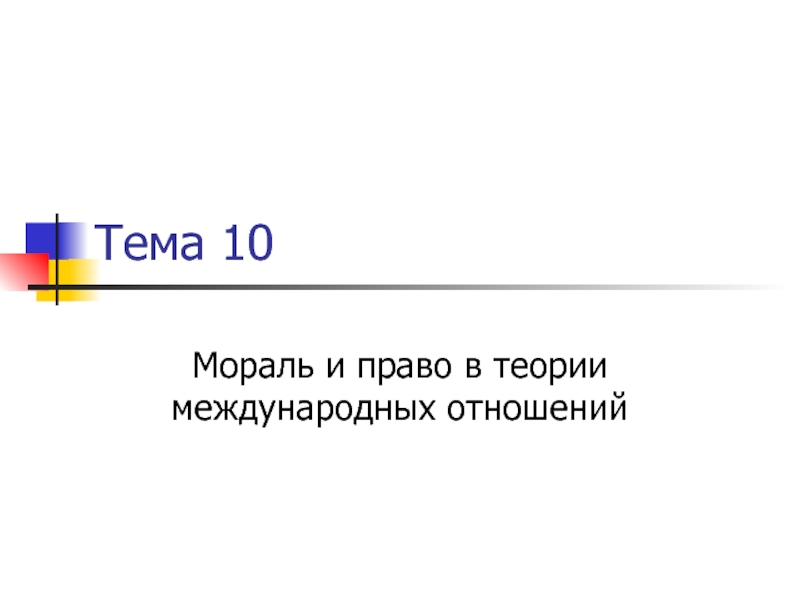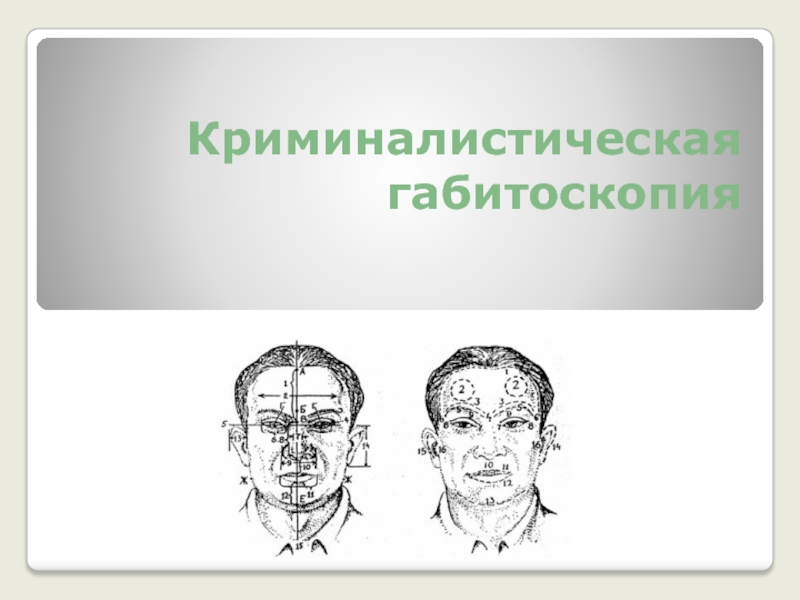- Главная
- Разное
- Дизайн
- Бизнес и предпринимательство
- Аналитика
- Образование
- Развлечения
- Красота и здоровье
- Финансы
- Государство
- Путешествия
- Спорт
- Недвижимость
- Армия
- Графика
- Культурология
- Еда и кулинария
- Лингвистика
- Английский язык
- Астрономия
- Алгебра
- Биология
- География
- Детские презентации
- Информатика
- История
- Литература
- Маркетинг
- Математика
- Медицина
- Менеджмент
- Музыка
- МХК
- Немецкий язык
- ОБЖ
- Обществознание
- Окружающий мир
- Педагогика
- Русский язык
- Технология
- Физика
- Философия
- Химия
- Шаблоны, картинки для презентаций
- Экология
- Экономика
- Юриспруденция
The law system of USA/UK презентация
Содержание
- 1. The law system of USA/UK
- 2. UK
- 3. The Law Although Britain is a unitary
- 4. The Judiciary The Lord Chancellor is head
- 5. THE COURTS Criminal Courts: Summary or
- 6. USA
- 7. The law American law and the US
- 8. The US Judiciary The US judiciary is
- 9. However, when appointing a Supreme Court judge,
- 10. The federal courts A separate system
- 11. The civil and criminal courts There’s
- 12. About lawyer referal services In many
- 13. The litigation Litigation is an American
Слайд 3The Law
Although Britain is a unitary state, England and Wales, Scotland
and Northern Ireland all have their own legal systems, with considerable differences in law, organisation and practice. However, a large amount of modern legislation applies throughout Britain. The law is divided into criminal law and civil law; the latter regulates the conduct of people in ordinary relations with one another. The distinction between the two branches of the law is reflected in the procedures used, the courts in which cases may be heard and the sanctions which may be applied.
The legal system of England and Wales comprises both an historic body of conventions known as common law and equity, and parliamentary and European Community legislation; the last of these applies throughout Britain. Common law, which is based on custom and interpreted in court cases by judges, has never been precisely defined or codified. It forms the basis of the law except when superseded by legislation. Equity law consists of a body of historic rules and principles which are applied by the courts. The English legal system is therefbre distinct from many of those of Western Europe, which have codes derived from Roman law
The legal system of England and Wales comprises both an historic body of conventions known as common law and equity, and parliamentary and European Community legislation; the last of these applies throughout Britain. Common law, which is based on custom and interpreted in court cases by judges, has never been precisely defined or codified. It forms the basis of the law except when superseded by legislation. Equity law consists of a body of historic rules and principles which are applied by the courts. The English legal system is therefbre distinct from many of those of Western Europe, which have codes derived from Roman law
Слайд 4The Judiciary
The Lord Chancellor is head of the judiciary in England
and Wales. His responsibilities include court procedure and, through the Court Service, the administration of the higher courts and many tribunals in England and Wales. He recommends all judicial appointments to the Crown - other than the highest, which are recommended by the Prime Minister - and appoints magistrates. Judges are normally appointed from practising lawyers. They are not subject to ministerial direction or control.
Слайд 5THE COURTS
Criminal Courts:
Summary or less serious offences, which make up the
vast majority of criminal cases, are tried in England and Wales by unpaid lay magistrates - justices of the peace (IPs), although in areas with a heavy workload there are a number of full-time, stipendiary magistrates. More serious offences are tried by the Crown Court, presided over by a judge sitting with a jury of citizens randomly picked from the local electoral register. The Crown Court sits at about 90 centres and is presided over by High Court judges, full-time 'circuit judges' and part-time recorders.
Appeals from the magistrates' courts go before the Crown Court or the High Court. Appeals from the Crown Court are made to the Court of Appeal (Criminal Division). The House of Lords is the final appeal court in all cases.
Слайд 7The law
American law and the US Constitution apply to everyone in
the US, irrespective of citizenship or immigration status, and even illegal immigrants have most of the same basic legal rights as US citizens. Under the US constitution, each state has the power to establish its own system of criminal and civil laws, resulting in 50 different state legal systems, each supported by its own laws, prisons, police forces, and county and city courts. There’s a wide variation in state and local laws, making life difficult for people moving between states. Never assume that the law is the same in different states (Conflict of State Laws is a popular course in American law schools).
Слайд 8The US Judiciary
The US judiciary is independent of the government and
consists of the Supreme Court, the US Court of Appeals and the US District Courts. The Supreme Court, the highest court in the land, consists of nine judges who are appointed for life by the President. Its decisions are final and legally binding on all parties. In deciding cases, the Supreme Court reviews the activities of state and federal governments and decides whether laws are constitutional. The Supreme Court has nullified laws passed by Congress and even declared the actions of US presidents unconstitutional. Momentous judgements in recent years have involved the Watergate scandal, racial segregation, abortion and capital punishment.
Слайд 9However, when appointing a Supreme Court judge, the President’s selection is
based on a candidate’s political and other views, which must usually correspond with his own. The Supreme Court was for many years made up of members with a liberal or reformist outlook, although this trend has been reversed in recent years with the appointment of conservative judges by successive Republican presidents.
Слайд 10The federal courts
A separate system of federal courts operates alongside state
courts and deals with cases arising under the US Constitution or any law or treaty. Federal courts also hear disputes involving state governments or between citizens resident in different states. Cases falling within federal jurisdiction are heard before a federal district judge. Appeals can be made to the Circuit Court of Appeals and in certain cases to the US Supreme Court.
Слайд 11The civil and criminal courts
There’s a clear separation and distinction between
civil courts, which settle disputes between people (such as property division after a divorce), and criminal courts that prosecute those who break the law. Crimes are categorised as minor offences (‘misdemeanours’) or serious violations of the law (‘felonies’). Misdemeanours include offences such as dropping litter, illegal parking or jay-walking, and are usually dealt with by a fine without a court appearance. Felonies, which include robbery and drug dealing, are tried in a court of law and those found guilty are generally sentenced to prison (jail).
Слайд 12About lawyer referal services
In many areas, lawyer (or attorney) referral services
are maintained by local (e.g. county) bar associations, whose members provide legal representation for a ‘reasonable’ fee. An unusual feature of the US legal system is plea bargaining, which involves the prosecution and the defence making a deal where the defendant agrees to plead guilty to a lesser charge, thus saving the court time and leading to a reduced sentence. This has made the US legal system something of a lottery, often with victims’ lives at stake, and in high profile cases (such as the O.J. Simpson case) a media circus. In the US, you’re normally considered guilty until proven innocent, at least in the eyes of the general public, and you may be tried and convicted by the media.
Слайд 13The litigation
Litigation is an American tradition and national sport, and every
American has a right to his day in court (as well as to his 15 minutes of fame). There are 15 to 20 million civil suits a year, which leads to a huge backlog of cases in all states and even the Supreme Court. One of the most unusual aspects of US law is that lawyers are permitted to work on a contingency fee basis, whereby they accept cases on a ‘no-win, no-fee’ basis. If they win, their fee is as high as 50 per cent of any damages. If you must hire a lawyer on a non-contingency basis, the cost is usually prohibitive. Most companies and professionals are so frightened of the courts that many cases don’t go to trial, e.g. personal injury and medical malpractice cases, which, apart from the cost of losing, are bad for business. This adds to the proliferation of law suits, as it’s expensive to fight a legal battle even if you win, and litigants know that most companies are happy to settle out of court. If you’re in business and not being sued by at least 100 people, it’s usually a sign that you’re broke and therefore not worth suing. If someone sues you for your last dime, don’t take it personally – it’s simply business.
